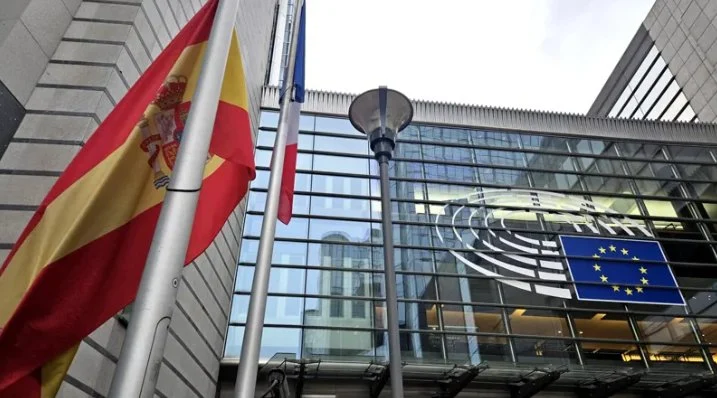Georgia pulls out of EU-linked parliamentary forum

(Interpressnews.)
TBILISI, November 2 – Georgia has withdrawn from the Euronest Parliamentary Assembly, a forum connecting the European Parliament with countries in the EU’s Eastern Partnership, after the body adopted a resolution accusing Tbilisi of democratic backsliding and calling the 2024 parliamentary elections fraudulent.
The decision marks the latest step in Georgia’s cooling relations with European institutions. Since January, its delegation has also boycotted sessions of the Parliamentary Assembly of the Council of Europe, Rezonansi reports.
Euronest, established in 2011, brings together lawmakers from the European Union and its eastern neighbors Armenia, Azerbaijan, Georgia, Moldova, and Ukraine with an aim to promote regional dialogue. Georgia had been an active member since the beginning, but it did not attend the latest session held in Yerevan earlier this week.
During that meeting, the assembly passed a resolution critical of Georgia’s government, citing what it described as a decline in democratic standards. It referred to last year’s elections as “rigged” and the current leadership as “self-declared,” while calling for the release of opposition activists the document labeled “political prisoners.”
Speaker of Parliament Shalva Papuashvili denounced the resolution as politically biased and insulting to the Georgian people. In a public statement on Friday, he said certain members of the European Parliament had turned Euronest into a tool of “blackmail” against partner countries rather than a platform for cooperation.
He said the Georgian delegation would no longer participate in future Euronest sessions. “Some European parliamentarians, known for their hostile and unfair attitudes toward Georgia, added passages that are unacceptable and outrageous for our society,” Papuashvili stated. “They called our elections falsified and our lawfully elected government self-declared, while describing convicted offenders as political prisoners.”
According to Papuashvili, the resolution disregards the rule of law and undermines the will of the Georgian electorate. “The European Parliament has turned the Euronest platform into an instrument for imposing its narrow political agenda on neighboring countries. It ignores Georgia’s democratic institutions and the choice of its people,” he said.
He also accused the European Parliament of straying from the principles of international order. “We once again call on the European Parliament to abandon its narrow political agenda and to respect a rules-based international system,” Papuashvili wrote. “Its current anti-democratic approach will only lead to Euronest’s self-isolation and marginalization.”
Despite the sharp tone, Papuashvili left open the possibility of returning to the forum, saying Georgia’s delegation would rejoin if the European Parliament created “conditions for constructive dialogue.”
The resolution that triggered the dispute has not yet been published in full, but excerpts released Friday confirm that Euronest expressed concern over “democratic regression” and judicial pressure on civil society and media in Georgia. The assembly also urged the government to ensure political pluralism and guarantee free and fair elections.
Political analyst Zaal Anjaparidze said Georgia’s withdrawal was understandable, arguing that the forum had become a venue for public confrontation rather than dialogue. “The Georgian delegation is invited there only to be humiliated and portrayed in a bad light,” Anjaparidze told Rezonansi. “If I were in the government’s position, I wouldn’t participate either. What’s the point of attending when you know you can’t convince anyone of your side of the story?”
He added that continued participation would do more harm than good. “Politically and reputationally, it causes more damage for the government to appear before such a hostile audience than to stay away,” he said.
Euronest has previously been a key channel for engagement between the EU and Georgia, especially on trade and governance reforms. Georgia’s exit follows months of rising tension with European institutions, which have criticized the government for restricting foreign-funded NGOs and undermining judicial independence.





